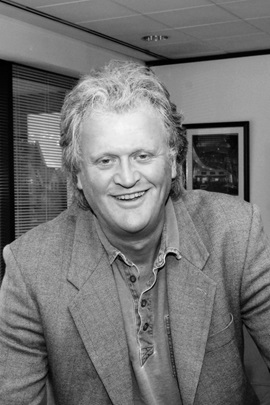If you or I, in a deliberate act and from a position of authority, gave information to the public which we knew to be false, we would risk being clapped in irons or, more worryingly, transported to Australia.

However, a minority of senior representatives of the medical profession, often representing government or government approved agencies, seems to trot out abject nonsense at will – which often goes uncorrected for years or decades, at least in the public’s mind.
A recent example related to lurid front-page headlines in a number of newspapers, in which a report sponsored by the government health organisation NICE said that there was no safe alcohol limit for dementia and that even light or moderate alcohol consumption increased the risk of this terrible illness.
The source of this myth was Professor Sir Ian Gilmore, formerly head of the Royal College of Physicians (if you want to become a knight, curing the sick is not enough on its own…) and inveterate anti-alcohol campaigner.
Logic
This is the same Gilmore (as he then was), I think, who assisted the major brewers (I kid you not) in opposing Wetherspoon’s licence applications for new pub licences in the 1980s and 1990s. It’s also the same Gilmore who advocated legalising heroin and cocaine, as reported in various newspaper articles in about 2010. Logic and consistency of argument are not the professor’s strong points, as is evident from this brief paragraph.
The Daily Mail was one newspaper which highlighted the ludicrous claims about alcohol and dementia on its front pages, yet, to its credit, published a long article in rebuttal from Tony Edwards, an author and journalist, who had studied these subjects in some depth. The basic argument of Mr Edwards is that Gilmore is talking nonsense. The overwhelming conclusion of the studies which he has made, and those which have been made by the medical profession itself, is that moderate alcohol consumption is a protecting factor in respect of dementia.
Mr Edwards states that he was not surprised that Gilmore had drawn conclusions which were the polar opposite of the truth, since he was a gastroenterologist and had no apparent training or experience in dementia. Mr Edwards asked NICE for a copy of the ‘independent’ report on which it relied, before it issued a press release linking alcohol to dementia; he was surprised to find that Sir Ian’s report dealt with the issue of the link between alcohol and dementia in only 92 words – hardly a considered analysis of this complex area.
Extreme
He was also surprised to learn that Gilmore is an inveterate anti-alcohol campaigner and president of Alcohol Concern, so not exactly an objective commentator. If, in the past, you have taken what most people regard as extreme anti-alcohol views, as well as views in respect of heroin which most would regard as outrageous, it is unlikely that many would believe you to be sufficiently unbiased to give advice on this important subject.
This is the second time which I can recall that Wetherspoon News has taken issue with a supposed learned professor on a medical matter. The last time, we questioned the health benefits of Britain lowering its salt consumption and referred our readers to a brilliant article by Gary Taubes in the New York Times in which he stated that the evidence indicated that lowering salt consumption worsened health outcomes for individuals and, in so many words, that the current levels of salt consumption in western countries were not harmful.
The anti-salt arguments, most vociferously advocated by Professor Graham MacGregor of the Wolfson Institute, seem to have been adopted wholesale by the NHS, which advocates a reduction in salt consumption from a daily average of about eight grams in Britain (the lowest in Europe) to six. There is simply no scientific evidence for this advice, at least as I understand it.
You shouldn’t take medical advice from me, and I am not exactly an unbiased commentator when it comes to the question of alcohol consumption. Pepsi, including Diet Pepsi, is our biggest-selling draught product, and we sell more coffee and tea than we do Pepsi; so, many customers have reduced their alcohol consumption, probably to their benefit, in many cases.
However, the last 45 years have seen health scare after health scare which have subsequently proven to have been misleading and wrong. Butter was supposed to be bad for you – that advice has now been retracted. You were supposed not to consume more than two eggs a week, said the NHS – eggs are now regarded as a super-food. You were supposed to drink two litres of water a day (not sure to what extent the NHS backed this one) – this has turned out to be utter balderdash. Running five miles a day is good for you – no, it’s not, in most cases – we now know that you are better off walking the dog for 30–40 minutes a day. A low-fat and high-carbohydrate diet will improve health – now regarded as completely untrue – and the whole link between dietary fat and heart disease has been questioned and, depending on what you read, proven to be untrue.
Deluded
As far as I’m concerned, Gilmore was not telling the truth in his report to NICE, and NICE, itself, is not telling the truth, by implication, by not retracting the information which it sent out, based on what Gilmore said. The attitude which is implicit in the approach of NICE and Gilmore is that it is legitimate to mislead the public in pursuance of the objective of persuading people to reduce their alcohol consumption, even if, perversely, it leads to an increased incidence of dementia. This is not a line of reasoning with which most people would agree.
Tim Martin
Chairman